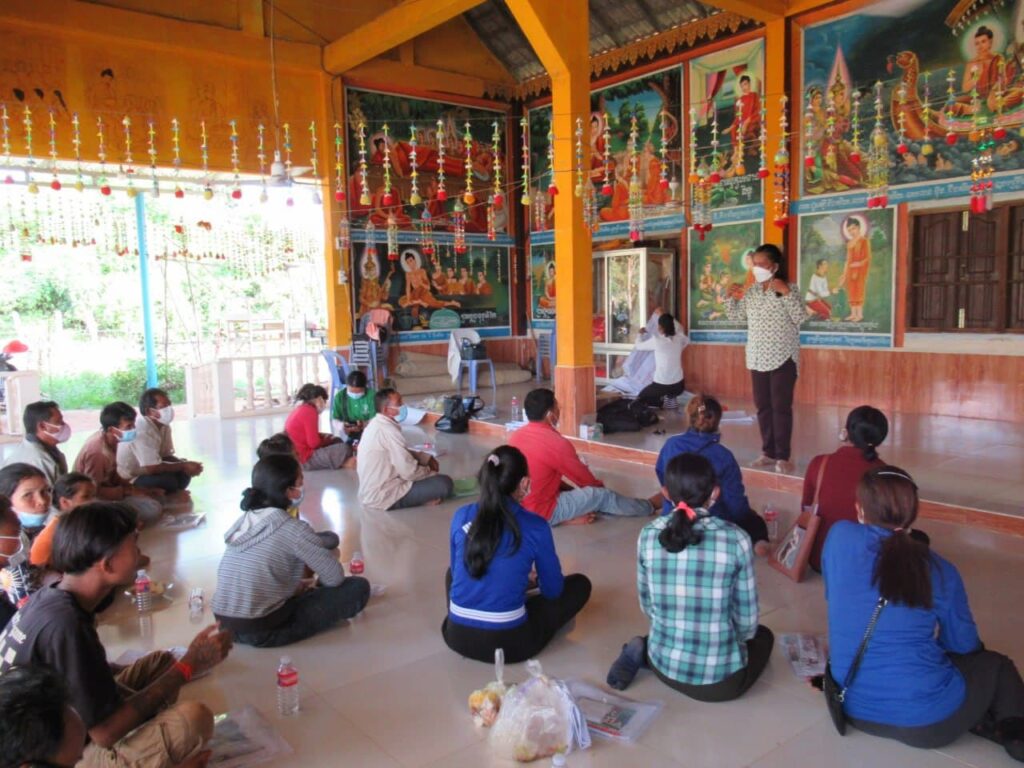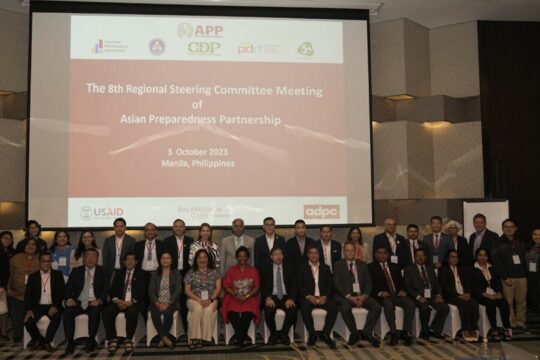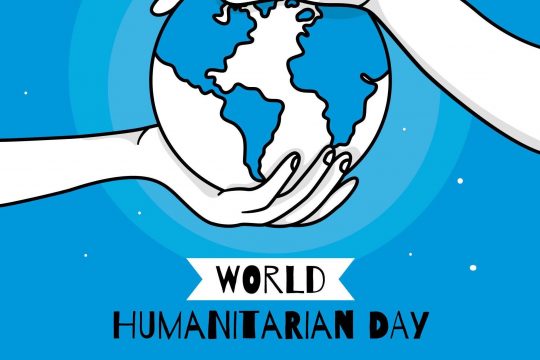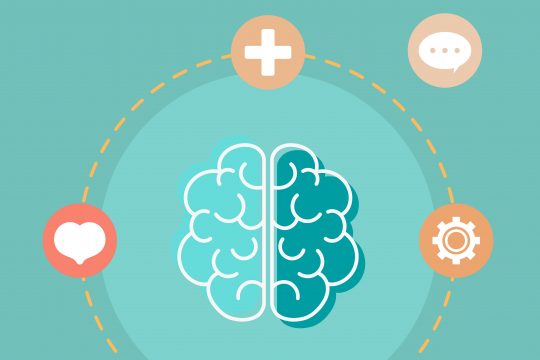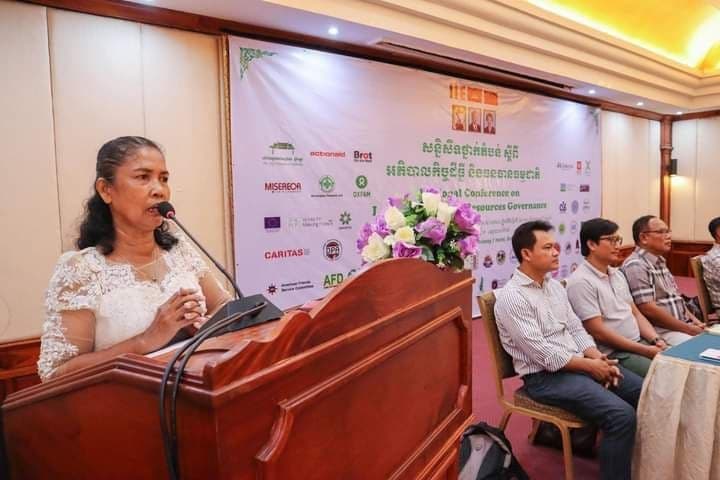
The disconnect between research and application motivates Chhorvivorn Ros. She became an advocate for equality to create spaces that voice women’s needs, “Empowering them starts with their participation in advocacy for increased knowledge, skills, techniques, and technology skills with the support of local authorities and state specialized units.”
Chhorvivorn strives for national commitments to become community level realities, “Cambodia has ratified the Convention on the Elimination of All Forms of Discrimination against Women. Village Support Group (VSG) wants to contribute to the government’s efforts in implementing this mechanism. The national priority focuses on promoting women in all social activities. This creates an atmosphere for them of respect for their rights and participation in climate change mitigation.” Advocating for equality requires organizations such as VSG to engage primarily in rural communities. Approximately 75.77% of Cambodia resides in rural areas. Chhorvivorn explains, “We work with women in target rural communities to ensure that they have adequate food, a decent standard of living, equal rights, employment, and a decent income. We also want to guarantee public services are transparent and accountable when they face the challenges of climate change.”
VSG works towards greater applications of global frameworks for gender equality into the national context. “Our organization has developed relevant bylaws, charters of institutions, policies, and principles to promote gender equality. We also believe that outward change needs to reflect with the organization and we have identified gender focal points within the organization” Staying connected with communities to develop advocates from within is crucial according to Chhorvivorn, “We regularly disseminate and train local community organizations (CBOs) in target areas to strengthen the capacity of men and women to understand and exercise their rights to contribute to community development.”
Women’s equality goes beyond communities and requires the attention of national stakeholders. The business community is women-driven, with 6 out of 10 businesses in Cambodia are owned by them. VSG actively collaborates and encourages the private sector, particularly at sub-national administration, to set up agenda that establishes greater attention to women. “Business communities need to identify policies that give attention to, solve and respond to the problems of women, and promote gender equality. They also need to prioritize financial equity in state institutions and local communities,” states Chhorvivorn. Women have proven their success as 90% of small and medium enterprises managed by women were profitable. Despite this indication, only 3% of women entrepreneurs have access to formal credit and these unmet demands are estimated to be USD 4.2 billion in Cambodia.
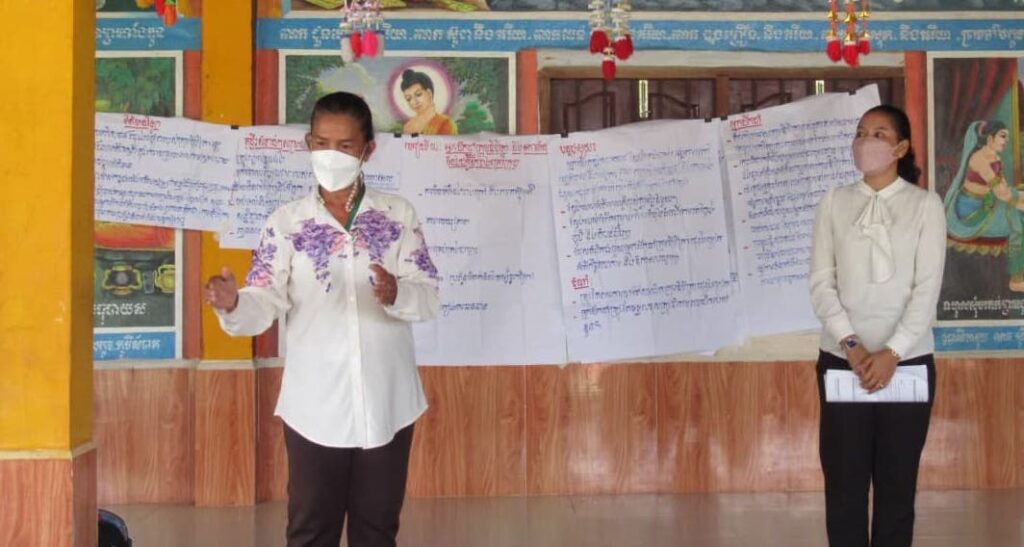
Chhorvivorn considers the traditional household model as a smaller scale rationale to engaging women in climate change adaptation, “Women are still more responsible for utilizing household resources (plastics, electricity, gas, water, firewood, charcoal) and consumables in Cambodia. Therefore, women are more likely to contribute to climate change mitigation.” She believes the solution is rooted in raising their awareness through tailored messaging. “We need to make educational short videos on concepts from recycling to raising awareness. These messages should center around their proactive approach to climate change and how it affects them.” Although climate change research is making leverage, Chhorvivorn wants these efforts to engage women. “There is no in-depth analysis of women’s vulnerabilities. Researchers need to engage women in the process as one of the lead or main contributors to analyze the risk and needs of women. We should collect at least 70% of the data from women to make any appropriate responses to their needs.”
Women’s participation in the decision-making role for climate change is a multilayered effort. Chhorvivorn connects initial engagement with mechanisms to address the needs of women with the participation of all stakeholders. “We also need to strengthen the capacity of women victims to exercise their full power and rights, a fundraising campaign through these stakeholders, support budgets for women’s activation in climate change adaptation, and conduct a regional competition to identify women champions in such initiatives.”
Chhorvivorn believes recognition ignites change: “Equality today for a sustainable tomorrow starts with always being valued. Women must have the full support of administrators and stakeholders with the incentive to take action knowing that their voices count.”
Cover Image: Konstantin/ @Shutterstock.com
